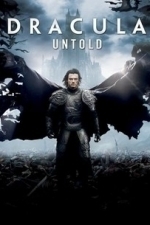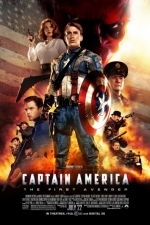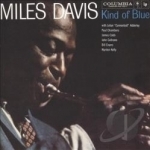Search
Search results
Suswatibasu (1703 KP) rated Boyhood (2014) in Movies
Aug 14, 2017
Unique, masterful coming-of-age film
Richard Linklater is incredible. He has such patience and a wonderful eye for human nature. To make a film over 11 years is no mean feat and yet he accomplished a unique and beautiful piece of art. The film itself is about the childhood and adolescence of Mason Evans Jr. and the subtle changes of growing up, that make this an original coming of age movie.
Awix (3310 KP) rated Dracula Untold (2014) in Movies
Jan 10, 2021
Untold, uninspired, and underwhelming take on a Dracula origin story, very much in the style of a comic book movie. Historians look away: Vlad Tepes is a client king of the Turks, who is forced to rebel against them and seeks out demonic, blood-sucking powers to help him defeat his opponents. (Charles Dance, playing his mentor in evil, is the best thing in the movie.)
Mildly diverting as an empty spectacle (gasp as Superdrac uses his FIST OF BATS power to squish the Turks!) but essentially useless: the film fails to engage with either the historical Vlad the Impaler or the iconic Dracula. Luke Evans fails to communicate any essential darkness lurking in his character, just coming across as a nice guy who makes a bad decision under pressure. If Dracula's not going to be a properly evil monster, what's the point of him? Good effects and reasonable art direction, but misses the point in every narrative sense.
Mildly diverting as an empty spectacle (gasp as Superdrac uses his FIST OF BATS power to squish the Turks!) but essentially useless: the film fails to engage with either the historical Vlad the Impaler or the iconic Dracula. Luke Evans fails to communicate any essential darkness lurking in his character, just coming across as a nice guy who makes a bad decision under pressure. If Dracula's not going to be a properly evil monster, what's the point of him? Good effects and reasonable art direction, but misses the point in every narrative sense.
Gareth von Kallenbach (980 KP) rated Captain America: The First Avenger (2011) in Movies
Aug 7, 2019
Captain America: The First Avenger is a return to form for the Marvel comic-book film universe, and a solid final lead-up to the multi-hero film The Avengers, coming next year.
Chris Evans does a fantastic job of introducing us to the wiry little guy with guts who eventually becomes Captain America. Such unashamed, honest virtue is different from the typical superhero movie we’ve come to see over the last few years, and for good reason: internal conflicts often make for dramatic films. However, I don’t think such unwavering idealism would have worked with any other comic-book character than Captain America. Stanley Tucci and Tommy Lee Jones add heart to the movie, but the soul of this movie really is the Captain. Hugo Weaving as The Red Skull plays a satisfying villain here, but his motives aren’t clarified enough to warrant his fervor for evil. Hayley Atwell, playing love interest and British agent Peggy Carter does a more convincing job in her role than Hugo Weaving does in his.
The plot of the film was pretty standard fare. Hero battles villain. The ending was more climactic and earnest than I had expected walking into the theater, and it gracefully sets up the Avengers movie. Like many of the other Marvel movies of recent note, there is a decent amount of self-deprecating comic book humor that helps break up the slower parts between action scenes.
The effects of the film were solid. They were pulpy enough to feel like a Marvel universe, rather than our own, but they still carried the action to an exciting level. The art department and cinematographer did a good job recreating the 40’s asthetic throughout the film, though there was enough exotic comic book elements to bring you back into a world where superheroes really do exist.
Despite its own flaws, this is one of the better Marvel films to come out since Iron Man, and count me in to watch The Avengers next year.
Chris Evans does a fantastic job of introducing us to the wiry little guy with guts who eventually becomes Captain America. Such unashamed, honest virtue is different from the typical superhero movie we’ve come to see over the last few years, and for good reason: internal conflicts often make for dramatic films. However, I don’t think such unwavering idealism would have worked with any other comic-book character than Captain America. Stanley Tucci and Tommy Lee Jones add heart to the movie, but the soul of this movie really is the Captain. Hugo Weaving as The Red Skull plays a satisfying villain here, but his motives aren’t clarified enough to warrant his fervor for evil. Hayley Atwell, playing love interest and British agent Peggy Carter does a more convincing job in her role than Hugo Weaving does in his.
The plot of the film was pretty standard fare. Hero battles villain. The ending was more climactic and earnest than I had expected walking into the theater, and it gracefully sets up the Avengers movie. Like many of the other Marvel movies of recent note, there is a decent amount of self-deprecating comic book humor that helps break up the slower parts between action scenes.
The effects of the film were solid. They were pulpy enough to feel like a Marvel universe, rather than our own, but they still carried the action to an exciting level. The art department and cinematographer did a good job recreating the 40’s asthetic throughout the film, though there was enough exotic comic book elements to bring you back into a world where superheroes really do exist.
Despite its own flaws, this is one of the better Marvel films to come out since Iron Man, and count me in to watch The Avengers next year.



